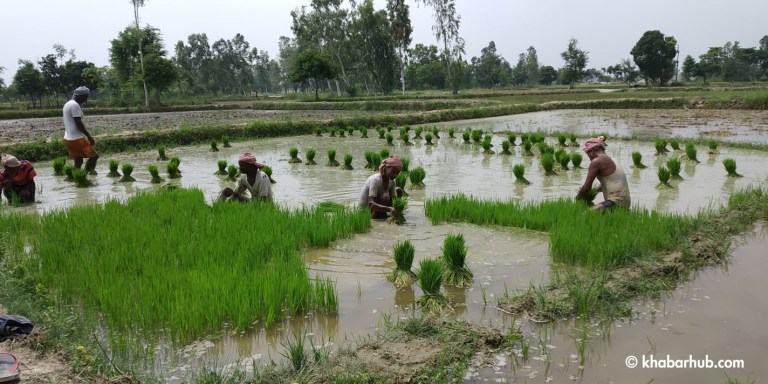KATHMANDU: The country does not have the ‘agriculture act’, although it has been touted as an agrarian country.
The agrarian economy is predominant in Nepal with 65.8% of the total population engaged in agriculture of which 60.2% are male and 72.8% are female.
The state lacks a clear policy on agriculture including an Agriculture Act.
The school curricula introduce the country as an agricultural country but the irony is that it is compelled to import foodstuffs of billions of rupees each year.
The country is providing subsidies and other facilities on the basis of directives in lack of clear agriculture policy and act.
Speaking in a meeting of the Delegated Management and Government Assurances Committee of the National Assembly on Sunday, President Ram Narayan Bidari said though it was surprising that the agrarian country does not have the agrarian act, it’s a reality.
He reminded that he had directed the officials to draft the act last year but it is yet to be drafted. He said agricultural loans and subsidies were distributed arbitrarily in lack of clear policy and act.
Bidari said a huge amount of the state coffer has been misused in lack of proper action. Bidari argued that the Minister, secretaries, and high officials are distributing agriculture grants and loans without any standard policy.
Repeated efforts to bring the act relating to agriculture have gone in vain so far, said the ministry secretary Krishna Acharya. Their lack of clear laws on providing subsidies and purchasing fertilizers by their quality, it has been informed. So far, there are only guidelines to regulate the sector.
The draft of the Agriculture Act has landed in the Ministry. The Committee has directed the Ministry to register it in the form of a bill in the parliament after holding discussions with the stakeholders, said the Committee secretary Sudarshan Khadka.
There is a need to replace the guidelines with a clear Act as it has been found that they have not been used in the right way, the Committee suggested.
The Ministry has allocated Rs 7.6 billion to provide concessional loans for the development of entrepreneurship and the value chain in agriculture.
Various organizations including the Nepal Dairy Association have been protesting an amended bill that allows an industry-funded by foreign countries to export 70 percent of its products to foreign countries.
This provision would ruin domestic industries, they argued.
(By Narayan Neupane/RSS)









Comment